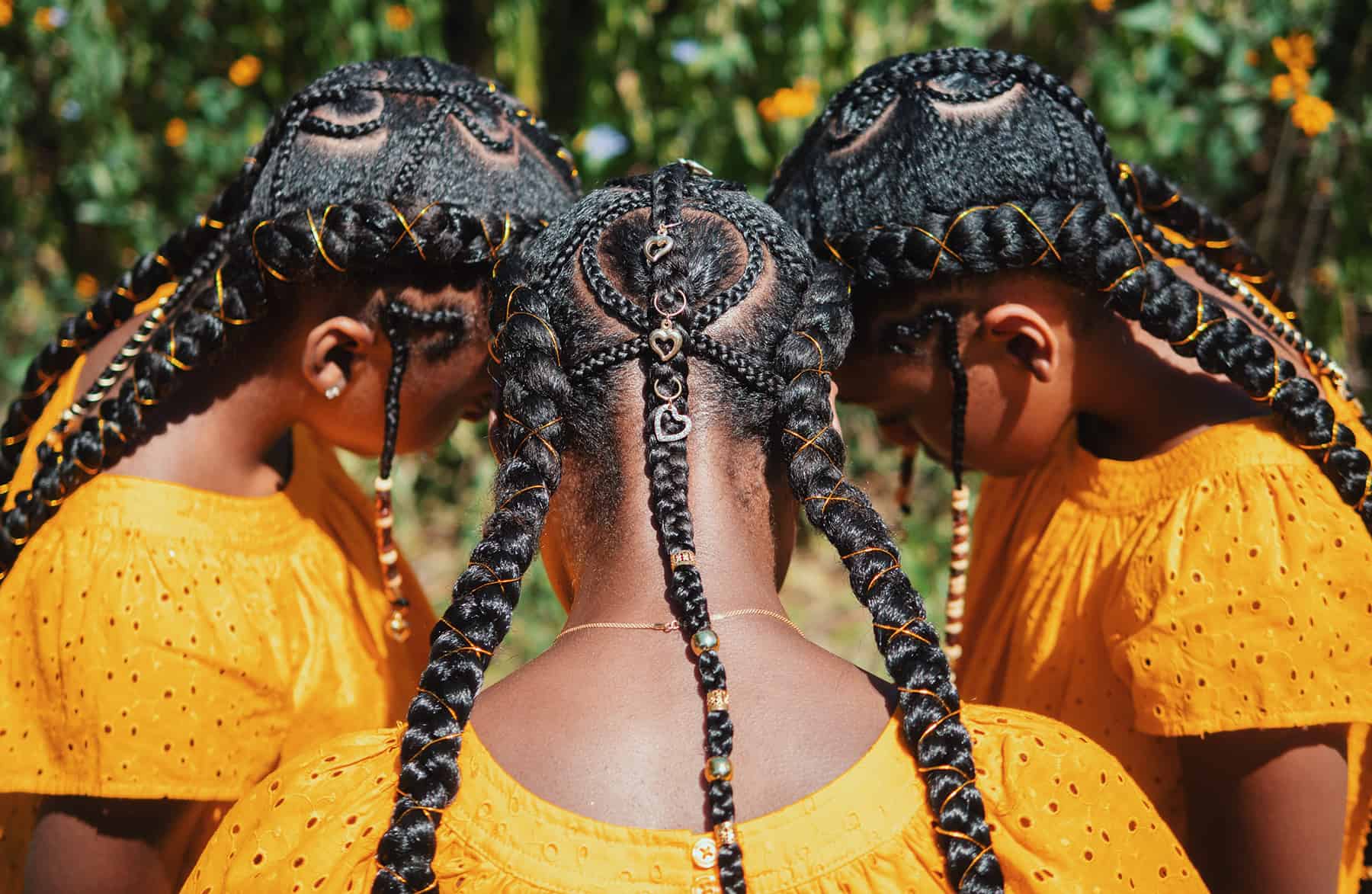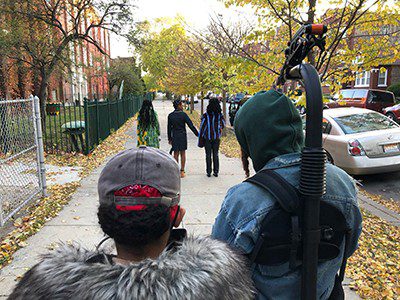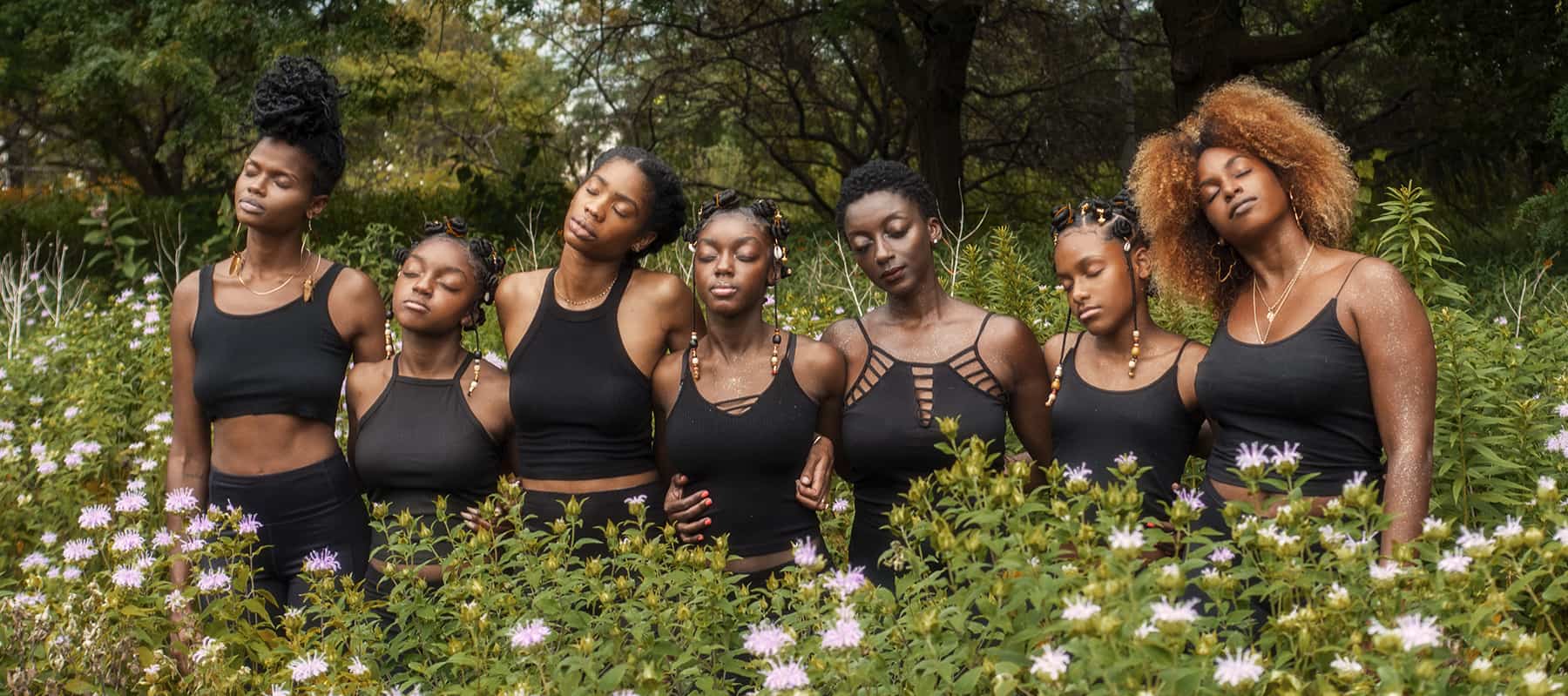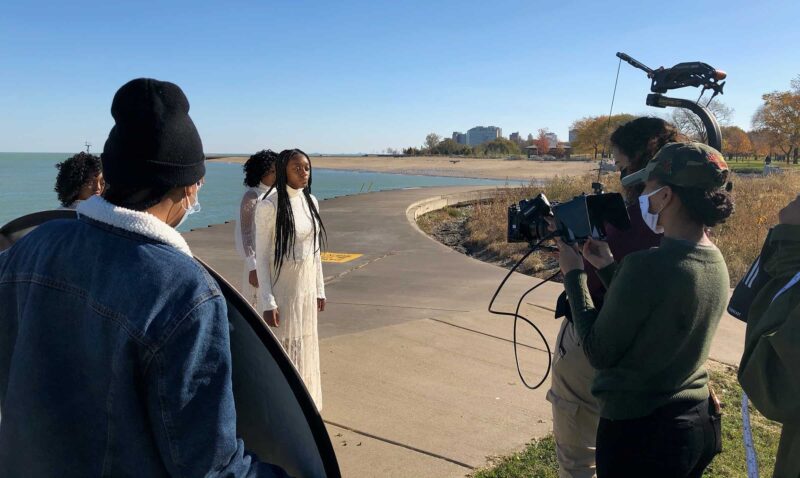Filmmakers at the US-based Black Girls Film, who received funding from Internews’ Rapid Response Fund to address information needs surrounding COVID-19, were working pre-pandemic on a documentary (with the working title “Black Girls”) about the resilience of young Black women, focusing on three students at the Betty Shabazz International Charter School in Chicago, IL. Their goal was to illuminate what it means to be a Black girl in America at the intersection of criminal justice, education, and media.

The school is an extension of the Institute for Positive Education, which was founded in 1969 during the Black Power Movement as an Afro-centric school. There is a focus on family involvement and a deep commitment to service and community; in the tight-knit school students refer to their teachers as “Mama” and “Baba.”
The producer and director, Johnaé Strong, wanted to see how the school could help girl students, who on the whole deal with challenges due to race and gender discrimination, learn resilience and learn to love themselves as Black girls. Johnaé and co-producer Cherrelle Swain also wanted to focus on the role that the girls’ mothers play in their lives and development.

A shift in focus as the COVID-19 pandemic hits
When the pandemic hit and schools moved online, the filmmakers had to shift their focus and their production methods. They started filming outside using small, socially-distanced crews.
The focus shifted to how the girls used the strong foundation developed in their school to adapt to the current situation.
“We recognize the urgency of getting the message out – countering negative stereotypes about Black girls and focusing on their lived experience,” said Cherrelle, “while keeping everyone safe during the pandemic.”
Black Girls Film used the grant from Internews to support production and promotion costs. Once the film is completed, they plan to use the film as a call for action to elected officials and education leaders, particularly related to the social-emotional and trauma response for young children and the socio-economic impact COVID-19 has on the home.

The pandemic crisis is also an information crisis, and journalists are the first responders. In an emergency, information saves lives. Hear from more journalists and information providers, as they grapple to stay operational and report on the crisis.
